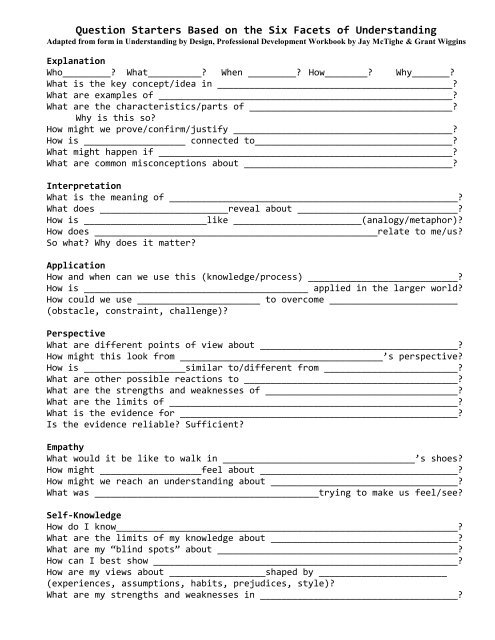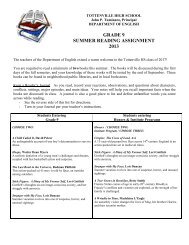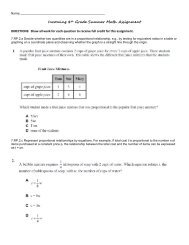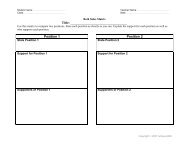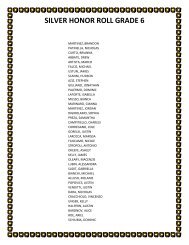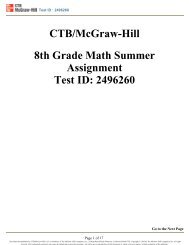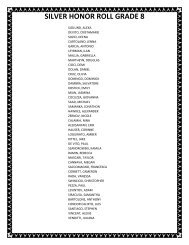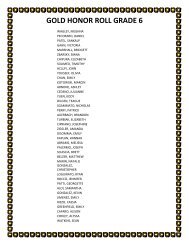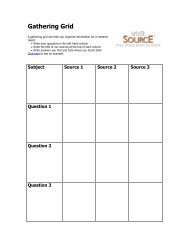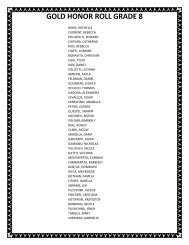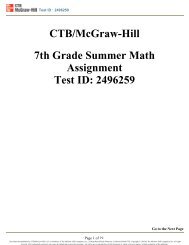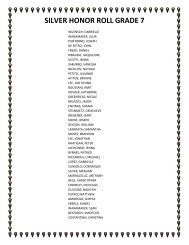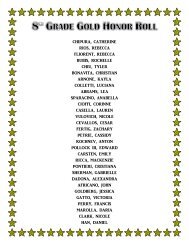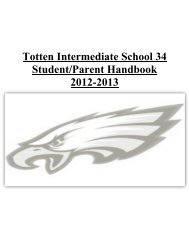6 Facet Questions
6 Facet Questions
6 Facet Questions
You also want an ePaper? Increase the reach of your titles
YUMPU automatically turns print PDFs into web optimized ePapers that Google loves.
Question Starters Based on the Six <strong>Facet</strong>s of Understanding<br />
Adapted from form in Understanding by Design, Professional Development Workbook by Jay McTighe & Grant Wiggins<br />
Explanation<br />
Who_________ What__________ When _________ How________ Why_______<br />
What is the key concept/idea in ____________________________________________<br />
What are examples of _______________________________________________________<br />
What are the characteristics/parts of ______________________________________<br />
Why is this so<br />
How might we prove/confirm/justify _________________________________________<br />
How is ___________________ connected to_____________________________________<br />
What might happen if _______________________________________________________<br />
What are common misconceptions about _______________________________________<br />
Interpretation<br />
What is the meaning of ______________________________________________________<br />
What does ________________________reveal about ______________________________<br />
How is _______________________like ________________________(analogy/metaphor)<br />
How does _____________________________________________________relate to me/us<br />
So what Why does it matter<br />
Application<br />
How and when can we use this (knowledge/process) ____________________________<br />
How is __________________________________________ applied in the larger world<br />
How could we use _______________________ to overcome ________________________<br />
(obstacle, constraint, challenge)<br />
Perspective<br />
What are different points of view about _____________________________________<br />
How might this look from ______________________________________’s perspective<br />
How is ___________________similar to/different from _________________________<br />
What are other possible reactions to ________________________________________<br />
What are the strengths and weaknesses of ____________________________________<br />
What are the limits of ______________________________________________________<br />
What is the evidence for ____________________________________________________<br />
Is the evidence reliable Sufficient<br />
Empathy<br />
What would it be like to walk in ____________________________________’s shoes<br />
How might ___________________feel about _____________________________________<br />
How might we reach an understanding about ___________________________________<br />
What was __________________________________________trying to make us feel/see<br />
Self-Knowledge<br />
How do I know________________________________________________________________<br />
What are the limits of my knowledge about ___________________________________<br />
What are my “blind spots” about _____________________________________________<br />
How can I best show _________________________________________________________<br />
How are my views about __________________shaped by ________________________<br />
(experiences, assumptions, habits, prejudices, style)<br />
What are my strengths and weaknesses in _____________________________________
Links with Examples of Essential <strong>Questions</strong><br />
http://www.state.nj.us/education/aps/njscp/<br />
http://www.greece.k12.ny.us/instruction/ela/6-<br />
12/essential%20questions/Index.htm<br />
http://www.techforlearning.org/essquest.html<br />
http://www.kent.k12.wa.us/KSD/IT/TSC/rethink_report/questions.htm<br />
Excellent worksheet for designing questions –<br />
http://www.kent.k12.wa.us/KSD/IT/TSC/rethink_report/QB_example.doc


